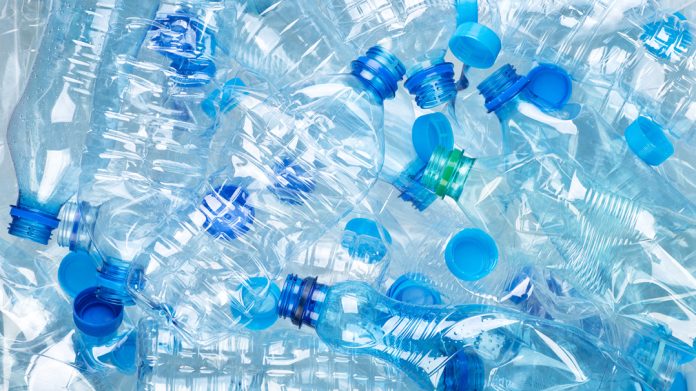How Are Plastic Bottles Made?
Plastics are made from oil or natural gas, which are made of molecules called hydrocarbons. When you heat hydrocarbons to very high temperatures, they break down into smaller molecules called monomers. There are many types of hydrocarbon monomers, such as methane, ethane, propane, and butane.
To make plastic, monomers are joined together to make a larger molecule called a polymer. The different types of plastic polymers are made of different combinations of monomers. These polymers are formed into pellets, powders, flakes, or liquids, which are the raw plastic material.
At the bottling factory, the raw plastic is put into a machine that heats it to a high temperature so that it becomes a liquid. The liquid is then injected into a bottle-shaped mold where it hardens.
Plastic Bottles and Bacteria Growth
Plastic bottles can harbor harmful bacteria, which is why most manufacturers recommend you use them only once. In truth, bacterial growth in water bottles is a much bigger concern than chemical leaching. If you need to reuse a plastic water bottle, make sure to wash it properly first. Most plastic water bottles don’t make for easy cleaning, so it can be tricky. But if you must reuse one, it’s best not to skip this step.
Bacterial growth can happen quickly just from the ordinary use of drinking out of the bottle. Even unfinished beverages left at room temperature can have a lot of bacteria growth throughout the day. It’s best to reuse plastic water bottles sparingly and wash them thoroughly because germs spread so quickly.
Additionally, wear and tear on the bottle from reuse can create cracks and scratches in the surface where more bacteria can grow. With that in mind, you might even want to skip plastic bottles and buy a reusable glass or stainless-steel bottle instead.
How to Recycle Water Bottles
If you want to recycle your plastic bottles, first make sure they are clean. Then, put them in your designated blue recycling bin, which holds all your plastic materials, including water bottles. Place the bin curbside before the scheduled pick-up time in your area.
You can also drop off water bottles at specific locations. Check with your municipal office about designated drop-off locations in your area.
Plastic Bottles Recycling Ideas
If you have plastic bottles that you can’t recycle, you don’t have to just toss them in the trash. You can also reuse them.
Here are a few creative ideas for reusing plastic bottles:
- Cut the top off plastic water bottles to make cups for pens, pencils, and craft supplies.
- Use coffee creamer bottles to store snacks, sugar, and salt.
- Cut the top off 2-liter bottles and paint them to make planters for houseplants or herbs.
- Punch holes in the top of laundry detergent bottles to make a watering can.
- Cut the handle and side off a milk jug to make a pet pooper scooper or garden trowel.
- Make a piggy bank out of old plastic bottles.
Water Bottle Recycling Challenges
According to the EPA, only about 9% of all plastic waste is recycled. Consumer plastics — such as soda bottles, water bottles, and milk jugs — have a slightly better rate of recycling at 30%, but there’s still far more we can do.
Some of the challenges of recycling plastic include:
- Non-recyclable materials that end up in recycling bins, which contaminates the batch and could mess up recycling machines. This may happen when people don’t know what can be recycled so they throw all their plastic in the recycle bin.
- The price of “virgin” plastic may be lower than the price of recycled plastic, so manufacturers choose virgin plastic to save costs.
- Some cities or towns don’t have the resources or government support to provide municipal recycling services.
- Many workers don’t want to work in the recycling industry because it can expose you to chemicals and powerful machines.
To help improve the rate of recycling, buy products that are made of recycled materials, choose alternates to plastic whenever possible, make sure you know what can go in your recycling bin, and try to reuse plastic as much as possible to keep it from going into landfills.
Credit: Webmd









